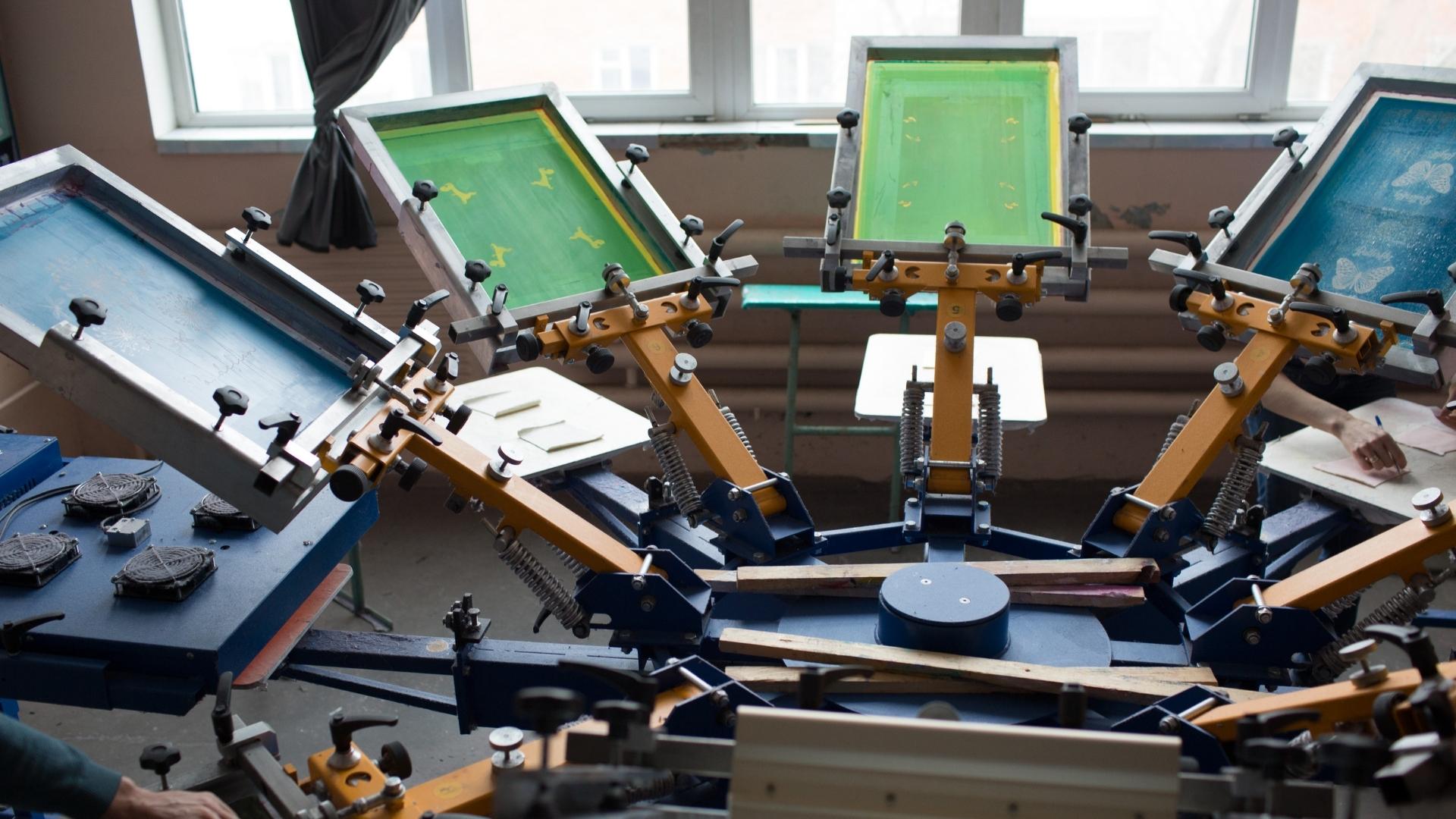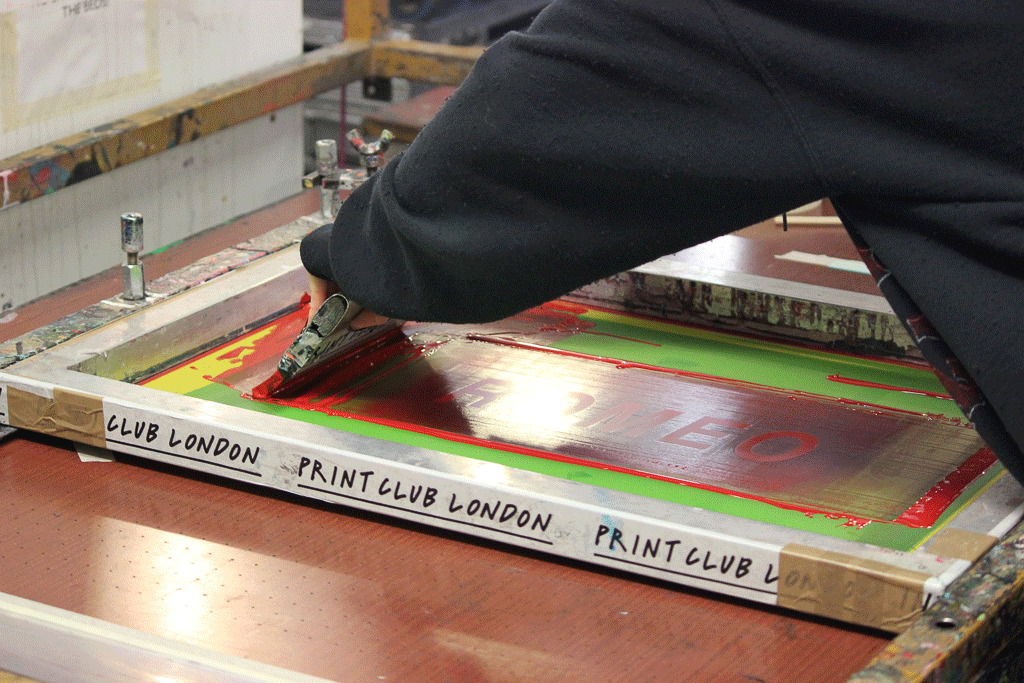ChatGPT said: How 10:9 Design Texas is redefining the screen printing industry
The Crucial Overview to Comprehending Screen Printing and Its Versatile Utilizes
Screen printing has an abundant history that dates back to old times, evolving right into a sophisticated strategy utilized throughout different sectors today. This guide discovers the ins and outs of the screen printing procedure, outlining its applications in fashion, home, and advertising and marketing style - 10:9 Design Embroidery. Comprehending these principles can open up innovative possibility for both commercial and creative tasks. The complying with areas will expose important ideas and techniques to improve one's screen printing undertakings
The History of Screen Printing
Screen printing has roots that trace back centuries, its development shows the artistic and technological developments of different cultures. Coming from in old China, the strategy was originally made use of for decorating textiles and later spread to Japan, where it became essential to Ukiyo-e woodblock printing. The technique changed to Europe in the 18th century, where it obtained appeal amongst craftsmens and business printers. The invention of photo emulsion in the 20th century changed screen printing, allowing for even more detailed layouts and greater efficiency. Artists like Andy Warhol further moved its popularity, utilizing the tool to develop iconic works that mixed commercialism and art. By the late 20th century, screen printing had actually developed itself as a functional method, utilized in vogue, marketing, and art. Today, it remains to advance, incorporating digital modern technology and broadening its applications across numerous markets.
The Screen Printing Process Explained
Screen printing changes imaginative visions into tangible layouts with a series of specific steps. Initially, a photo is produced and afterwards moved onto a screen, usually constructed from great mesh material extended over a frame. A light-sensitive emulsion is related to the screen, which is subjected to light, hardening in locations not covered by the image. After rinsing the unhardened emulsion, a pattern is created.
Next, the screen is put over the substratum, whether it be material, paper, or one more product. Ink is after that pushed with the open locations of the stencil making use of a squeegee, depositing the layout onto the substrate listed below. This procedure can be repeated for numerous colors, requiring different screens for every hue. The published item is healed using warm to assure the ink adheres correctly, resulting in a resilient, dynamic design prepared for use.
Types of Screen Printing Techniques

Furthermore, specialty strategies, such as discharge screen printing, get rid of color from the textile to produce softer prints, while foil screen printing uses metal foil to attain a shiny surface (10:9 Design Screen Printing Texas). Each strategy supplies distinct attributes, satisfying numerous creative requirements and manufacturing ranges, eventually increasing the possibilities within the screen printing domain name
Applications of Screen Printing in Numerous Industries

Furthermore, the signs and advertising industries make use of screen my review here printing for creating captivating displays and banners. This technique enables for vibrant colors and elaborate layouts that catch interest. In electronic devices, screen printing is used for applying conductive inks to circuit boards, essential for element links. The home style industry embraces screen printing to produce distinct designs on fabrics and wall art. Generally, screen printing works as a critical tool across varied fields, boosting products with personalized and aesthetically enticing graphics.
Tips for Successful Screen Printing Projects
While embarking on a screen printing task, mindful focus to information can considerably enhance the last end result. Selecting premium products is important; this includes the screen, inks, and substrates. Utilizing suitable mesh matters can affect ink deposition and information resolution. Preparation is just as vital; extensive cleaning of displays and correct direct exposure times guarantee crisp prints.
Next, precise registration is vital for multi-color prints. Utilizing alignment devices can assist achieve accurate layering. In addition, screening prints on scrap products before production aids recognize potential issues without squandering resources.

Frequently Asked Inquiries
What Products Are Finest for Screen Printing on Material?
Cotton and polyester blends are perfect for screen printing on textile because of their resilience and ink absorption. Additionally, specialized textiles like silk or canvas can produce one-of-a-kind structures and finishes, improving the overall style high quality.
Exactly how Do I Clean and Maintain Screen Printing Equipment?
To clean and maintain screen printing tools, one need to routinely wash screens with proper solvents, examine squeegees for wear, lube moving components, and shop all things in a completely dry, dust-free environment to prolong their life expectancy.
What Are the Environmental Impacts of Screen Printing?
Screen printing can have substantial environmental impacts, consisting of chemical waste from inks and solvents, water use throughout cleansing processes, and power usage. Sustainable techniques and environmentally friendly materials are essential for decreasing these negative effects.
Can Screen Printing Be Done in the house Successfully?
Screen printing can be efficiently done at home with the right products and strategies. Hobbyists can create quality prints, though success depends on their skill degree, equipment, and understanding of the procedure entailed.
What Are the Expenses Related To Beginning a Screen Printing Service?

Beginning a screen printing organization involves prices for equipment, materials, and work area. Initial costs typically range from a few hundred to numerous thousand dollars, depending on the range, top quality of equipment, and wanted manufacturing capacity.
Screen printing has an abundant history that dates back to ancient times, evolving into a sophisticated technique utilized across various sectors today. An additional strategy, rotary screen printing, utilizes round screens, facilitating continuous printing on fabric rolls, thus boosting efficiency for large-scale productions. In addition, specialty methods, such as discharge screen printing, remove color from the material to develop softer prints, while foil screen printing applies metal aluminum foil to achieve a shiny coating. In the style sector, screen printing is extensively utilized to create dynamic designs on apparel, enabling brand names to showcase their one-of-a-kind designs. Cotton and polyester blends are ideal for screen printing on fabric due to their toughness and ink absorption.